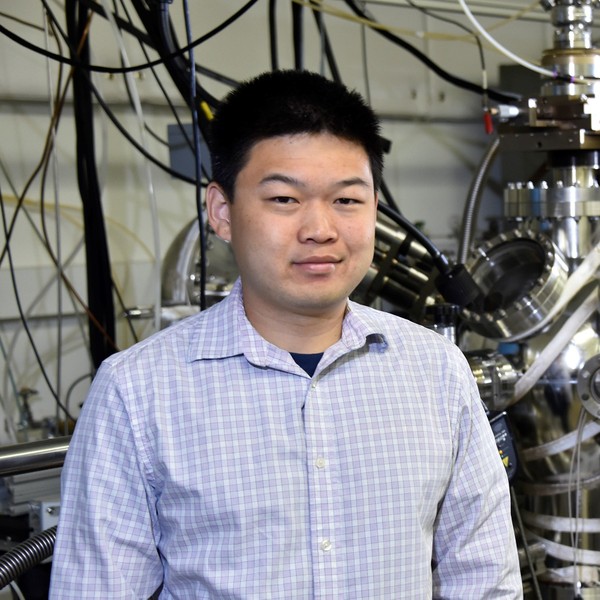
What are your key roles and responsibilities in your current positions? What do you like most about your job and what do you find most challenging?
I serve as a PI on challenging research programs to develop new electronic materials. My role as a research scientist is in many ways similar to that of a professor at a university, in that I write grants for research programs, develop research plans that often span 3-5 years, and execute the plans with collaboration with other scientists and engineers both inside and outside of my organization. There are incredibly smart and deeply experienced people I work with every day, and I value the flexibility and work-life balance that comes with working in the government. That being said, government has its fair share of red tape, and things often take a lot longer to get done than they would in schools or industry.
List or describe the top 5+ professional skills that are crucial to your role.
- Technical project management. Specifically, being able to lead a research program from idea conception to program wrap-up, including being able to find funding, budgeting, designing research plans, executing the research, task-management, and producing deliverables in the form of milestones, reports, presentations, publications, and patents.
- Multitasking. Being able to juggle 3 or 4 deeply involved projects concurrently, often across very different subject matters.
- Collaboration. Being able to delegate tasks to other colleagues to both split the workload but also to let those more capable to tackle problems that they are more likely to succeed at.
- Communication. Being able to advocate for yourself to get what you need; being assertive when appropriate. Being able to “sell” your ideas to funding agencies so your work can be funded. Being able to “sell” your results so that other scientists/interested parties become invested in you/your organization/your work.
- Networking. Being able to build strong relationships with key individuals that will help bolster your career/your standing/your organization’s standings, and lead to reciprocity, future collaboration, and opportunities.
How did your time at Yale shape your career trajectory? For example, what skills and/or experiences did you acquire that have contributed to your career success?
My PhD advisor was a huge proponent of having his students get “on stage” early in graduate school. In my second year, I was already delivering presentations in front of a program manager from the Office of Naval Research to showcase our group’s work to be able to maintain funding for our projects. I also learned the pace of research and picked up the skillset to be able to design my own experiments and to watch the progression of a research idea from conception to publication. These are the same skills I use on a day-to-day basis at my current job, just with higher stakes.
What were the biggest challenges that you faced when transitioning to different workplaces and cultures? What advice and suggestions can you offer to current students to help them prepare for those challenges?
Specifically for going from academia to government research lab, there is a big shift in terms of responsibilities. My job is much more intensely focused on research than an academia-based job, the key difference being the lack of students and teaching responsibilities. Your time will be spent entirely on performing research and supporting the lab’s administrative and programmatic needs. My advice would be to talk to as many folks as you can who are actively working in the industries that you are looking into, to see what day-to-day life is like, and what the expectations are.
